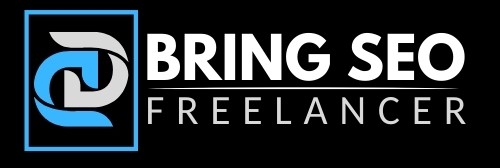A successful digital marketer needs a diverse set of skills to excel in the rapidly evolving online landscape.
Some key skills required of a digital marketer:
Digital Advertising: Proficiency in running and optimizing digital advertising campaigns on platforms like Google Ads, Facebook Ads, and other social media advertising platforms.
Content Creation: The ability to create various types of content, including blog posts, videos, infographics, and more. Good writing and multimedia skills are essential.
SEO (Search Engine Optimization): Understanding how search engines work and the ability to optimize web content to improve organic search rankings.
Data Analysis: Analyzing data to measure the effectiveness of marketing campaigns and making data-driven decisions. Skills in tools like Google Analytics are essential.
Social Media Marketing: Managing and growing a brand’s presence on social media platforms, including creating and scheduling posts, engaging with the audience, and running paid campaigns.
Email Marketing: Proficiency in email marketing platforms, crafting engaging email campaigns, and understanding email analytics.
PPC (Pay-Per-Click) Advertising: Mastery of paid advertising, including keyword research, bid management, and ad copywriting.
Content Marketing: Developing content strategies, understanding the buyer’s journey, and creating content that resonates with the target audience.
Copywriting: Crafting persuasive and engaging copy for various digital marketing materials, including ads, landing pages, and social media posts.
Graphic Design: Basic design skills to create visually appealing graphics for social media posts, ads, and other digital content.
Web Analytics: Understanding website performance metrics and user behavior to optimize user experience and conversions.
A/B Testing: Knowledge of split testing and experimentation to refine marketing strategies.
Marketing Automation: Using tools like HubSpot, Marketo, or others to automate marketing processes, including lead nurturing and customer segmentation.
Conversion Rate Optimization (CRO): The ability to identify and optimize elements on a website or landing page to improve conversion rates.
Social Listening: Monitoring and analyzing brand mentions and customer feedback on social media to inform marketing strategies.
Mobile Marketing: Understanding mobile-specific marketing strategies, including mobile app marketing and responsive design.
Video Production: Basic video editing and production skills for creating video content for various platforms.
Project Management: Organizing and managing marketing campaigns, including setting goals, timelines, and budgets.
Coding and Technical Skills: A basic understanding of HTML, CSS, and JavaScript can be valuable for making website improvements and understanding web development.
Adaptability and Continuous Learning: Given the ever-changing digital landscape, digital marketers need to stay updated with the latest trends and technologies and be adaptable to new tools and platforms.
Communication Skills: Effective communication, both written and verbal, is vital for collaborating with team members, clients, and stakeholders.
Creativity and Innovation: Thinking creatively to develop unique and attention-grabbing marketing campaigns.
Understanding of Legal and Ethical Guidelines: Awareness of legal and ethical considerations in digital marketing, including data privacy and compliance with regulations.

